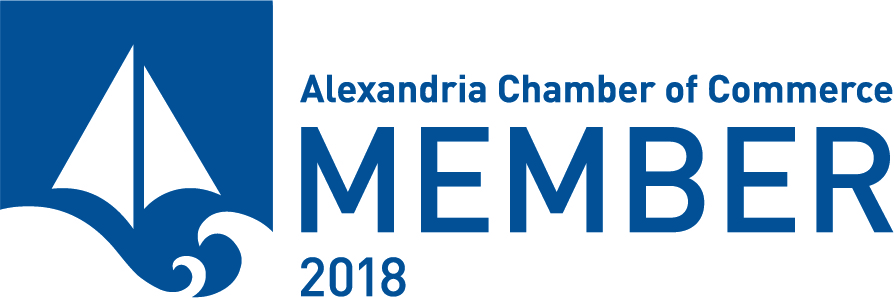Virginia Computer Crimes Act: Va. Code. § 18.2-152.1 et. seq.
The Virginia Computer Crimes Act contains multiple specific offenses as outline below:
Computer Fraud, § 18.2-152.3 , is defined as
Any person who uses a computer or computer network, without authority and:1. Obtains property or services by false pretenses;2. Embezzles or commits larceny; or3. Converts the property of another;
Such a crime is either a Class 1 Misdemeanor or Class 5 Felony, depending on the amount or value involved.
Spam
§ 18.2-152.3:1 prohibits certain activity relating to unsolicited electronic communications (Spam), and violations can range from a Class 1 Misdemeanor to a Class 6 Felony.
Computer Trespass
§ 18.2-152.4 prohibits “computer trespass”, which among other things involves using a computer to alter financial transactions, using a computer to injure property of another, and erasing or altering data. Violations range from a Class 1 /practice-areas/criminal-defense/misdemeanors/ to a Class 6 /practice-areas/criminal-defense/felonies/.
Invasion of Privacy
§ 18.2-152.5 prohibits a person to “intentionally examine without authority any employment, salary, credit or any other financial or identifying information…” Depending on the circumstances this, too, can be either a Class 1 /practice-areas/criminal-defense/misdemeanors/ or a Class 6 Felony.
§ 18.2-152.5:1 further prohibits the “use a computer to obtain, access, or record, through the use of material artifice, trickery or deception, any identifying information…” Such a violation is either a Class 6 or Class 5 /practice-areas/criminal-defense/felonies/.
Theft of Computer Services
§ 18.2-152.6 states ” Any person who willfully obtains computer services without authority is guilty of the crime of theft of computer services, which shall be punishable as a Class 1/practice-areas/criminal-defense/misdemeanors/. If the theft of computer services is valued at $2,500 or more, he is guilty of a Class 6 felony. ”
Personal Trespass by Computer
§ 18.2-152.7 prohibits the use of a computer to cause “physical injury to an individual”. This is a Class 6 /practice-areas/criminal-defense/felonies/, and a Class 3 /practice-areas/criminal-defense/felonies/ if done “maliciously.”
Harassment by Computer
§ 18.2-152.7:1 states ” If any person, with the intent to coerce, intimidate, or harass any person, shall use a computer or computer network to communicate obscene, vulgar, profane, lewd, lascivious, or indecent language, or make any suggestion or proposal of an obscene nature, or threaten any illegal or immoral act, he shall be guilty of a Class 1 /practice-areas/criminal-defense/misdemeanors/.”
Embezzlement
§ 18.2-152.8 defines certain types of property specifically subject to ‘Embezzlement”, as below:
1. Computers and computer networks;
2. Financial instruments, computer data, computer programs, computer software and all other personal property regardless of whether they are:
a. Tangible or intangible;
b. In a format readable by humans or by a computer;
c. In transit between computers or within a computer network or between any devices which comprise a computer; or
d. Located on any paper or in any device on which it is stored by a computer or by a human; and
3. Computer services.
Civil Damages
§ 18.2-152.12 provides for the recovery of civil damages for a violation of any of the above.
If You Have Been Charged With A Computer Crime
If you have been charged with any computer crimes outlined above, or face any other charges, contact our office. Our attorneys Farheena Siddiqui and Brian Szmak can talk about your options and help you fight for the best outcome.
Virginia and D.C. Federal Crimes
Federal Assault Crimes
Assault on Law Enforcement: 18 U.S.C. 111
Simple Assault: 18 U.S.C. 113
Assault with Intent to Commit Murder: 18 U.S.C. 111
Domestic Assault: 18 U.S.C. 117
Maiming: 18 U.S.C. 114
Murder: 18 U.S.C. 1111-1122
Kidnapping: 18 U.S.C. 1201-1204
Domestic Violence and Stalking: 18 USC 2261-2266
Transportation for Illegal Sexual Activity: 18 U.S.C. 2421-2429
Human Trafficking
Sex Crimes
Aggravated Sexual Abuse: 18 U.S.C. 2241
Sexual Abuse of a Minor: 18 U.S.C. 2243
Sexual Abuse: 18 U.S.C. 2242
Federal Driving Crimes
Reckless Driving: 32 CFR 263.6
Hit & Run
Federal White Collar Crimes
Embezzlement: 18 U.S.C. 641-670
Blackmail: 18 USC 873
Other Federal Crimes
Terrorism: 18 U.S.C. 2231-2339(d)
Riots: 18 U.S.C. 2101-2102
Federal Drug & Alcohol Crime
Drug Distribution and Trafficking
Marijuana Possession: 18 U.S.C. 844
Prescription Fraud
Federal Weapons Offenses
Felon in Possession of a Firearm: 18 U.S.C. 922(g)
Weapon used in crime of violence of drug trafficking: 18 U.S.C. 924(c)
Sale of Firearms without a License: 18 U.S.C. 922(a)
Sale of Illegal Firearms: 18 U.S.C. 922
Making False Statements when Purchasing Firearm: 18 U.S.C. 922(a)(6)
Illegal Possession of Firearm: 18 U.S.C. 922(o)
Federal Cyber/Computer Crimes
Child Pornography
Federal Punishment and Procedure
Failure to Appear: 18 USC 3146


